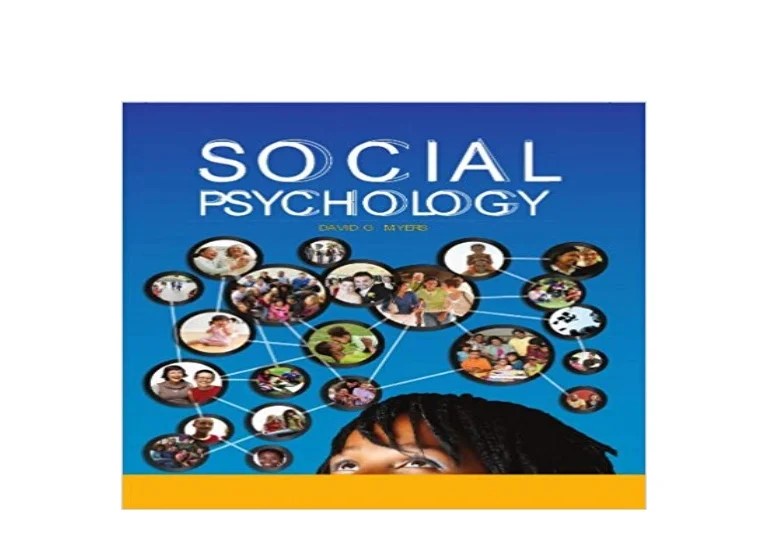Social psychology 11th edition elliot aronson – Embark on a captivating journey into the realm of social psychology with Elliot Aronson’s seminal work, Social Psychology 11th Edition. This comprehensive and engaging text delves into the intricate dynamics of human behavior, shedding light on the profound impact of social norms, prejudice, and relationships.
Through a captivating narrative, Aronson unravels the complexities of social cognition, revealing the processes involved in perception, attitude formation, and decision-making. The text explores the diverse forms of social influence, examining the factors that shape persuasion and the role of power in social interactions.
Social Psychology Concepts
Social psychology is the scientific study of how individuals think, feel, and behave in social situations. It examines the influence of social norms, conformity, prejudice, and discrimination on human behavior.
Impact of Social Norms and Conformity
- Social norms are unwritten rules that govern behavior in a particular society.
- Conformity is the tendency to change one’s behavior to match the behavior of others.
- Social norms and conformity can have a powerful influence on our thoughts, feelings, and actions.
Role of Prejudice and Discrimination
- Prejudice is an unjustifiable negative attitude towards a particular group of people.
- Discrimination is the unfair treatment of a person or group based on their membership in a particular category.
- Prejudice and discrimination can have devastating consequences for individuals and society as a whole.
Social Cognition

Social cognition refers to the mental processes involved in understanding and interacting with others. It includes social perception, attitude formation and change, and decision-making.
Processes Involved in Social Perception
- Social perception is the process of forming impressions of others.
- We use a variety of cues to form impressions, including physical appearance, behavior, and social context.
- Our impressions of others can be influenced by our own biases and expectations.
Theories of Attitude Formation and Change
- Attitudes are beliefs and feelings that we hold about objects, people, or ideas.
- Attitudes can be formed through a variety of processes, including direct experience, social learning, and persuasion.
- Attitudes can be changed through a variety of methods, including persuasion, cognitive dissonance, and self-perception.
Impact of Heuristics and Biases in Decision-Making
- Heuristics are mental shortcuts that we use to make decisions.
- Biases are cognitive errors that can lead us to make poor decisions.
- Heuristics and biases can have a significant impact on our decision-making in a variety of contexts.
Social Influence
Social influence refers to the process by which one person’s thoughts, feelings, or behaviors are affected by the thoughts, feelings, or behaviors of others.
Different Forms of Social Influence, Social psychology 11th edition elliot aronson
- Conformity is the tendency to change one’s behavior to match the behavior of others.
- Obedience is the tendency to follow the orders of an authority figure.
- Persuasion is the process of changing someone’s attitudes or beliefs.
Factors that Influence Persuasion
- The source of the message
- The content of the message
- The audience
Role of Power and Authority in Social Interactions
- Power is the ability to influence others.
- Authority is the legitimate right to influence others.
- Power and authority can have a significant impact on social interactions.
Social Relationships

Social relationships are the connections that we form with others. They can be close relationships, such as friendships and romantic relationships, or more distant relationships, such as acquaintances and coworkers.
Different Types of Social Relationships
- Close relationships are characterized by intimacy, trust, and mutual support.
- Casual relationships are less intimate and involve less mutual support.
- Social networks are the web of relationships that we have with others.
Factors that Contribute to Relationship Satisfaction
- Communication
- Trust
- Support
Challenges and Rewards of Social Relationships
- Social relationships can be a source of great joy and support.
- They can also be a source of stress and conflict.
- It is important to weigh the challenges and rewards of social relationships when making decisions about who to spend our time with.
Social Psychology in Action: Social Psychology 11th Edition Elliot Aronson

Social psychology is applied in a variety of real-world settings, including marketing, education, and health care.
Examples of Social Psychology in Action
- Marketing campaigns use social psychology principles to persuade consumers to buy products.
- Educational programs use social psychology principles to teach students about social issues.
- Health care professionals use social psychology principles to help patients improve their health behaviors.
Ethical Implications of Social Psychology Research
- Social psychology research has the potential to be used for both good and evil.
- It is important to consider the ethical implications of social psychology research before conducting studies.
- Social psychologists have a responsibility to use their knowledge for the benefit of society.
Future Directions of Social Psychology Research
- Social psychology is a rapidly growing field.
- There are many exciting new directions for research in social psychology.
- Social psychologists are working to better understand the social world and to improve the human condition.
Quick FAQs
What are the fundamental principles of social psychology?
Social psychology examines the influence of social factors on individual thoughts, feelings, and behaviors, emphasizing the interplay between the individual and the social environment.
How does social psychology explain prejudice and discrimination?
Social psychology explores the psychological roots of prejudice, including stereotyping, ingroup bias, and social identity theory, and analyzes the negative consequences of discrimination.
What is the role of social norms in shaping behavior?
Social norms are unwritten rules and expectations that guide behavior within a society. Social psychology investigates how individuals conform to these norms and the factors that influence conformity.